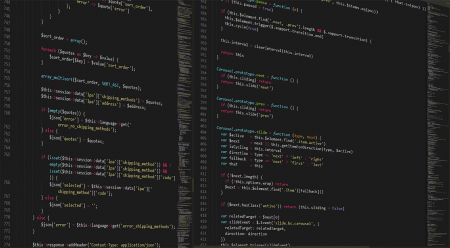Не могли бы вы перевести текст на российский?THE GREAT WORK MYTHWork
Не могли бы вы перевести текст на русский?
THE GREAT WORK MYTH
Work gets a terrible press. Pick up any newspaper on almost any day and youll read about how works killing our marriages, generating stress, depriving children of quality time, hollowing out local communities and depressing us.
Work has become the scapegoat for all our woes. The case against work is put in persuasive terms on an almost daily basis. There is only one problem with it: its nonsense. For the truth is that, as far as work is concerned, weve never had it so good.
The survey shows that four out of ten British workers declare themselves very satisfied with their jobs more than in France, Germany, Italy, or Spain. Average earnings have increased, a lot of firms offer longer maternity leave, a third of firms now offer sabbaticals, and two-thirds allow their staff to work from home some of the time. The rhetoric about longer working hours also needs to be put in perspective. The average working day has increased in length over the last two decades, but by just one minute and forty-two seconds.
Despite all the improvements in work over recent decades, there is still an ingrained attitude that happiness lies outside work, that we are waiting for the weekend. This idea that work is essentially bad for us has a long history. Karl Marx described workers being alienated from the product of their labour: What, then, constitutes the alienation of labour? he asked. First, the fact that labour is external to the worker, i.e. it does not belong to his essential being; that in his work he does not affirm himself but denies himself; does not feel content but unhappy; does not develop his physical and mental energy but mortifies his body and ruins his mind. However, relentless negativity about work condemns us to precisely the sort of work that Marx was trying to free us from 150 years ago. If we accept that work is dull and demeaning a ransom paid for the hostage of our free time then we are allowing alienation to remain.
Work is becoming too important for it to be of dubious quality. Work is a community, the place where we meet friends and form relationships, a provider of our social as well as our work life. One in three of us meets most of our friends through work, two-thirds of us have dated someone at work, and, according to a poll by recruitment consultqncy Sanders and Sidney, a quarter of us meet our life partners there. Work is also becoming a more important indicator of identity. Family, class, region, and religion are now less robust indicators, and work is filling the gap, making it the most important fact about ourselves we mention when we meet people. Work, as Albert Einstein said, is the only thing that gives substance to life.
The shift of work towards the centre of our lives demonstrates the futility of much of the current debates about work / life balance. It is true that some people are working longer hours. Yet the idea that it is being forced upon us without our choice just doesnt stack up. Take the people working the greatest number of hours more than sixty a week. Surveys show that they are the ones who say they like their jobs the most. This may seem surprising, until you reflect that people who like something might do more of it than people who do not. People who love their jobs own up to having a work/life problem because they put in more hours than they are strictly required to. In truth, they are simply мейд to feel as if they have a problem because of prevalent attitudes. Of course, this leaves open the question of who keeps the home fires burning and of the impact on children especially. It may be that people are choosing to invest less time and energy at home than others think they should, but, if these people get more out of their work than they do out of their home, then perhaps this is a clear and valid choice for people to be making.
Ultimately, our goal must be to begin seeing work as an intrinsic part of our life, rather than an adjunct to it. Theodore Zeldin, an Oxford don, has the right manifesto for the future of work: its abolition. But not in the way anti-work campaigners have in mind. We should abolish work, he says. By that I mean abolishing the distinction between work and leisure, one of the greatest mistakes of the last century, one that enables employers to keep workers in lousy jobs by granting them some leisure time. We should strive to be employed in such a way that we dont realize what we are doing is work. Zeldin throws down the challenge for work in the twenty-first century. It is indeed time to abandon the notion of work as a downpayment on life, but, before we can do so, all the modern myths about work will have to be exposed: the ones that continue to stereotype work as intrinsically sapping, demeaning, and corrosive. It is time to give work a break.
Работа получает ужасную нажмите. Возьмите всякую газету фактически на хоть какой денек, и вы будете читать о том, как работа убивает наши браки, творя стресс, лишает малышей качественное время, размывание местных общин и нажав нас.
Работа стала козлом отпущения для всех наших неудачах.Дело против работы ставится в убедительных точки на почти повседневной основе. Существует только одна неувязка с ним: это абсурд. За правду, что, как работа, то мы никогда не было так хорошо.
Исследование показывает, что четыре из 10 британских рабочих заявить о себе "очень удовлетворены" своей работой - больше, чем во Франции, Германии, Италии или Испании. Средний заработок возрос, многие конторы предлагают больше декретный отпуск, третья часть компаний на данный момент предлагают творческие отпуска, а две трети дозволяют своим сотрудникам работать из дома какое-то время.Риторика о более продолжительный рабочий денек и необходимо ставить в перспективе.Средняя рабочий денек возрос в длину на протяжении заключительных 2-ух десятилетий, но всего за одну минутку и 40 две секунды.
Невзирая на все улучшения в работе течение последних десятилетий, до сих пор укоренилось отношение, что счастье находится вне работы, что нас ожидает в течение выходных. Эта мысль, что работа является по существу плохо для нас имеет долгую историю. Карл Маркс обрисовал тружеников, находящихся с "отчуждены" от продукта собственного труда: "Что же, представляет собой отчуждение труда?" Спросил он. "Во-первых, тот факт, что труд является наружным по отношению к труженику, то есть она не принадлежит к его сущностного бытия; что в собственной работе он не утверждает себя, но отрицает себя; не ощущает содержание, но сердиты; не развивать его физическое и психическое энергию, но умерщвляет его тело и разрушает его идеи. "Тем не наименее, безустанно негатив о работе осуждает нас точно такой вид работы, что Маркс пробовал высвободить нас от 150 лет вспять. Если мы признаем, что работа скучна и унизительно - выкуп заплатил за заложника нашего свободного времени - тогда мы дозволяем отчуждение остаться.
Работа становится слишком важна для того, чтоб быть непонятного свойства. Работа сообщество, место, где мы встречаемся с друзьями и сформировывать отношения, поставщик наша соц а также наша работа жизнь. Один из нас троих отвечает большинству наших друзей через работу, две трети из нас от кого-то на работе, и, по опросу, проведенному набор consultqncy Сандерс и Сидней, четверть из нас удовлетворить нашу жизнь там партнеров. Работа также становится более главным показателем идентичности. Семья, класс, регион, и религия в истиннее время наименее надежные характеристики, и работа наполнения зазора, что делает его более главный факт о себе отметим когда мы встречаемся человек. "Работа", а Альберт Эйнштейн произнес, "это единственное, что дает основание жизни".
-
Вопросы ответы
Статьи
Информатика
Статьи
Математика.
Физика.
Математика.
Разные вопросы.
Разные вопросы.
Математика.
Разные вопросы.
Математика.
Физика.
Геометрия.




